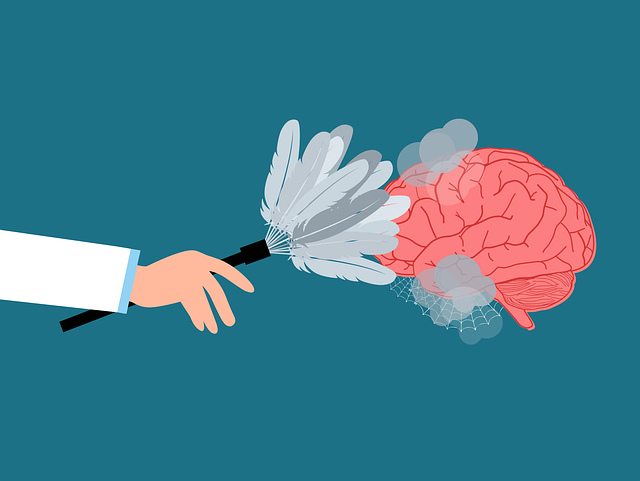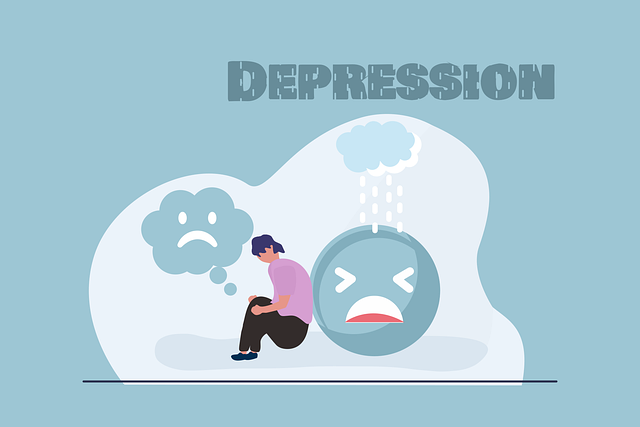Longmont Oppositional Defiance Disorder (ODD) therapy focuses on building resilience through the RFM approach, combining CBT and mindfulness for effective symptom management. Tailored exercises, risk assessment, and emotional intelligence training empower individuals to view setbacks as growth opportunities, improving anger management, impulse control, and overall mental health outcomes. This holistic method prioritizes individualized care, ensuring personalized strategies for success in Longmont ODD therapy settings.
“In the realm of mental health, particularly focusing on Longmont Oppositional Defiance Disorder (ODD) therapy, Resilience-based interventions stand as game-changers. This article explores the potent combination of RFM (Resilience, Flexibility, and Mindfulness) techniques for building resilience in individuals grappling with ODD. We delve into effective implementation strategies, offer insights on navigating challenges, and emphasize the significance of measuring success within these transformative exercise programs.”
- Understanding Resilience and RFM in Longmont Oppositional Defiance Disorder Therapy
- Implementing Resilience-Building Exercises for Effective Treatment
- Navigating Challenges and Measuring Success in RFM Exercise Programs
Understanding Resilience and RFM in Longmont Oppositional Defiance Disorder Therapy

Resilience is the ability to adapt and bounce back from challenging situations, a vital skill for individuals dealing with Oppositional Defiance Disorder (ODD). In Longmont Oppositional Defiance Disorder Therapy, understanding resilience is key to helping clients navigate their symptoms effectively. RFM (Resilience, Flexibility, and Mindfulness) exercises are often integrated into treatment plans to foster this quality. These practices encourage individuals to view setbacks as opportunities for growth, enhancing their coping mechanisms and overall well-being.
The RFM approach, when tailored for ODD, focuses on teaching clients practical strategies for managing anger, improving impulsivity, and cultivating a sense of calm. By incorporating techniques from cognitive-behavioral therapy (CBT) and mindfulness practices, therapists can assist patients in regulating their emotions, improving their decision-making skills, and reducing behaviors associated with ODD. This holistic approach, combined with regular risk assessment for mental health professionals, ensures that clients develop effective mood management strategies while also addressing the underlying causes of their oppositional behavior, ultimately leading to better anxiety relief and improved quality of life.
Implementing Resilience-Building Exercises for Effective Treatment

Implementing Resilience-Building Exercises for Effective Treatment
In the context of Longmont Oppositional Defiance Disorder (ODD) Therapy, resilience-building exercises serve as a powerful adjunct to traditional treatment methods. These exercises are designed to help individuals develop coping strategies that enhance their ability to navigate and overcome challenges. By integrating activities that foster emotional intelligence and crisis intervention guidance, therapists can create a supportive environment where clients learn to manage impulsive behaviors and build inner strength.
A comprehensive Risk Assessment for Mental Health Professionals is crucial to tailoring these exercises to each individual’s needs. Through this assessment, professionals gain insights into potential triggers and resilience gaps, enabling them to incorporate relevant and effective strategies. Whether it’s teaching mindfulness techniques or engaging in role-playing scenarios, such exercises empower clients with the tools needed to respond adaptively during moments of distress, ultimately leading to improved mental health outcomes in Longmont ODD Therapy settings.
Navigating Challenges and Measuring Success in RFM Exercise Programs

Navigating Challenges and Measuring Success in RFM Exercise Programs plays a pivotal role in Longmont Oppositional Defiance Disorder Therapy (LODT). While designing such programs, mental health professionals must consider individual needs and readiness levels to avoid potential setbacks. Each client brings unique experiences and coping mechanisms, necessitating tailored interventions. For instance, integrating Self-Care Routine Development for Better Mental Health can enhance participants’ ability to manage stress, a crucial aspect of resilience building.
Measuring success in RFM exercises goes beyond mere participation. It involves assessing improvements in Emotional Intelligence, as well as tracking changes in clients’ behaviors and interactions. Risk Assessment for Mental Health Professionals is essential to identify potential triggers and implement safety protocols. By combining these strategies, LODT practitioners can ensure that RFM programs are both effective and safe, fostering meaningful progress toward enhanced resilience among participants.
In the context of Longmont Oppositional Defiance Disorder (ODD) Therapy, implementing Resilience-Building Exercises through the RFM (Strength, Flexibility, and Mood) model offers a promising approach to enhancing coping mechanisms and improving overall well-being. By integrating these exercises into treatment plans, therapists can effectively navigate the challenges presented by ODD, fostering resilience in young individuals. Measuring success involves tracking improvements in emotional regulation, flexible thinking, and positive mood states, ultimately leading to more adaptive behaviors and enhanced life satisfaction.












